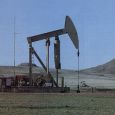The Gift of South Dakota
Subscriptions to South Dakota Magazine make great gifts!
Subscribe today — 1 year (6 issues) is just $29!
U.S. Needs Keystone XL
Nov 28, 2011
One reason to oppose the Keystone XL pipeline across the U.S. is that it will provide a market for tar sands oil. Of course, the delay or cancellation of the pipeline will stop the extraction of tar sands oil only if there is nowhere else for the oil to go.
There is, and it’s China. Canada’s Prime Minister, Stephen Harper, has said his nation will look for opportunities to supply the Asian market for energy, now that President Obama has delayed and perhaps killed the new pipeline.
It is difficult to believe that the Canadians will sit on such a valuable commodity. If the oil doesn’t go south it will go east. This will cut the U.S. out of that market and it will do more damage to more “boreal forest” than Keystone would do. On the bright side, South Dakota landowners won’t have to suffer the indignities of eminent domain and the web of oil pipelines already crisscrossing the U.S. will have one less strand. Perhaps that is a reasonable trade.
Another argument for blocking Keystone XL and tar sands oil extraction is that it will encourage the development of renewable energy sources such as solar power. The theory behind this argument is that renewable sources are viable but more expensive than oil. Constrict the supply of oil and/or make it oil more expensive and investment will shift toward renewable sources. Earth saved.
Well, maybe not. According to Business Week, the market for Chinese-made solar panels is collapsing.
Losses for China’s largest solar manufacturers, including Suntech Power Holdings Co. and JA Solar Holdings Co. may continue through next year as declining shipments prompt them to slash prices and liquidate inventory…
Cell prices have fallen 59 percent since Dec. 27, according to Bloomberg New Energy Finance. Seven Chinese companies reported lower gross margins since yesterday and three said margins have moved into negative territory, an unsustainable level, said Hari Chandra Polavarapu, an analyst at Auriga USA in New York.
The price of solar panels is indeed falling, but not because an economy of scale is making their manufacture cheaper. The price is falling because the demand is falling. The demand for solar panels is largely artificial. It exists because governments and well-heeled homeowners like the idea of renewable energy, not because it makes economic sense.
I am guessing that the Keystone XL pipeline will eventually be built. If it isn’t, that will not stop oil from being extracted or used. It will not suddenly make solar power viable. It will just mean that the U.S. is cut out of the deal.
Dr. Ken Blanchard is a professor of Political Science at Northern State University and writes for the Aberdeen American News and the blog South Dakota Politics.










Comments
Dave: yes.